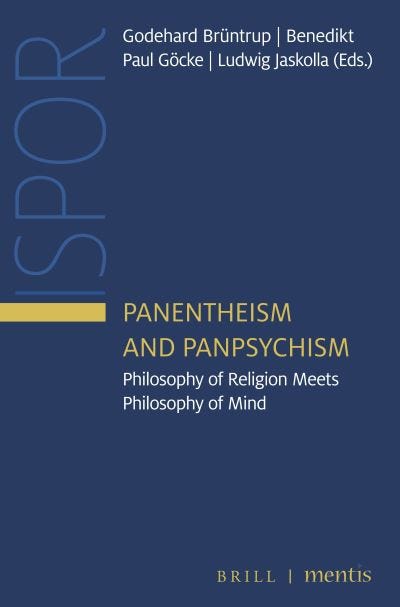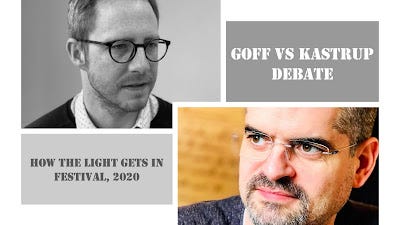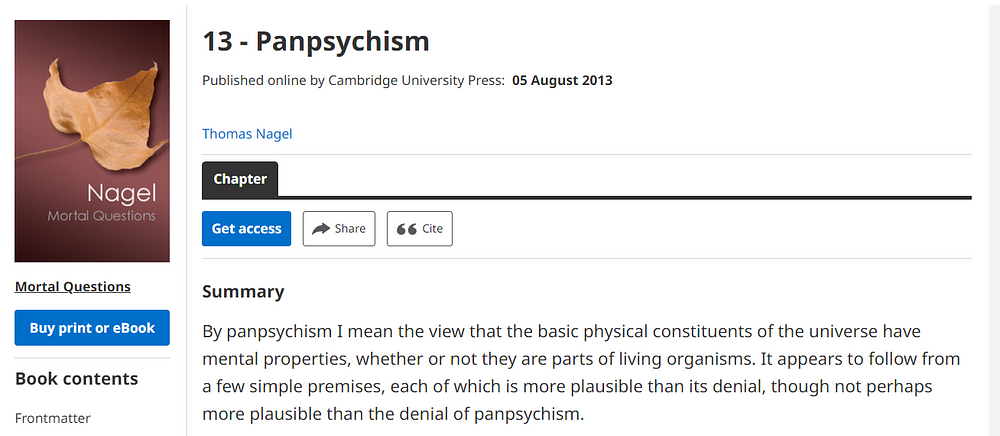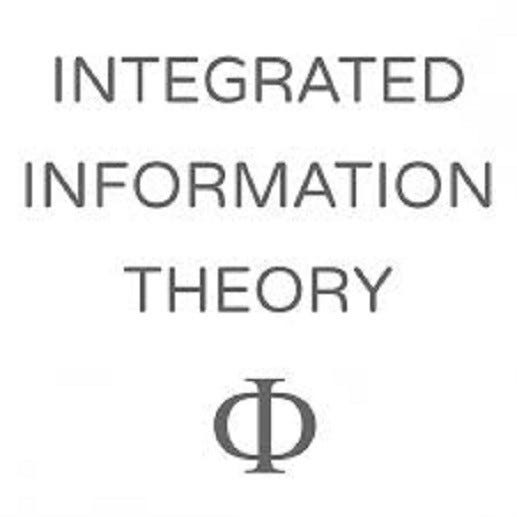A personal and historical take on the recent rise of panpsychism.

[The term “analytic panpsychism” is in quotation marks because it crops up a few times in the philosophical literature. See here, here and here.]
************************
To start this essay on a personal note.
I don’t recall a single reference to panpsychism at university in the early 2000s from either my fellow students or from the professors who taught there. And this situation remained the case right up to 2007/8.

Indeed the panpsychist philosopher Philip Goff also acknowledges this situation in his book Galileo’s Error.
Goff points out that in the early 2000s he had to (as it were) seek out a panpsychist to teach him. He writes:
“But the new professor at the University of Reading, Galen Strawson, was busy defending panpsychism. [] This seemed like the place for me.”
Goff also says that because he was (as it were) worried about propagating panpsychism when a postgraduate, he (as I read it) kept his beliefs to himself.
In terms of academic work, Goff wrote his first paper on panpsychism (‘Experiences Don’t Sum’) in 2006 . Indeed even here there’s one slight (or possible) complication: Goff’s paper from 2009, ‘Why Panpsychism Doesn’t Help Us Explain Consciousness’. Judging by the title and abstract (e.g., “the paper argues that panpsychism cannot help us to explain consciousness”) of that paper, it appears to be critical of panpsychism.
Yet, despite all the above, it’s often said that panpsychism dates back to various ancient civilisations (see here and here).
And, if we jump forward many centuries, panpsychism is also dated back to what some people call its “heyday” in the 19th century (see here). And then we had such (scare-quoted) “panpsychist” philosophers as Bertrand Russell and A.N. Whitehead in the early 20th century.
Yet not all these historical positions replicate what’s expressed by many contemporary panpsychists — at least those philosophers within the tradition of analytic philosophy.
Indeed so many dead philosophers and scientists are classed as panpsychists nowadays that one doesn’t know where to start.
Of course many of these classifications are entirely retrospective in nature (i.e., written mainly by 21st-century panpsychists). That can be seen because it only takes a few minutes to realise that all these historical “panpsychists” actually held very-different views.
(For example, simply reading the abstract of Anand Jayprakash Vaidya’s paper ‘Analytic Panpsychism and the Metaphysics of Rāmānuja’s Viśiṣṭādvaita Vedānta’ will make that very clear.)

All this basically means that we have — if anything at all — a plurality of panpsychisms, rather than a singular panpsychism.

Take as an example of all this the British philosopher Timothy Sprigge, who wrote a book called A Vindication of Absolute Idealism (1983). Despite the title, this book is deemed (at least by some) to advance a form of panpsychism! (The book is seen to be a “synthesis of panpsychism and absolute idealism”.) Yet this is at odds with, for example, the philosopher Bernardo Kastrup’s own “analytic idealism” and the fact that Kastrup has strong and negative words to say against panpsychism. (See Kastrup’s ‘The threat of panpsychism: a warning’ and ‘The irony of Philip Goff’s arguments’. ) Similarly, Philip Goff — Kastrup’s main target — returns the favour by arguing against (though without Kastrupian rhetoric and rudeness) Kastrup. (See Goff’s ‘Response to Bernardo Kastrup’ and here.)
Added to the problem of certain kinds of idealism being classed as “panpsychism” are the multiple varieties of (pure or not so pure) panpsychism itself.
Take Goff’s Stanford Encyclopaedia of Philosophy entry on “Panpsychism”. In that piece Goff cites eleven different kinds of panpsychism. Admittedly, some of the panpsychist isms which Goff cites may be either virtual synonyms or subsets of each other.
[Goff’s long list of panpsychisms: micropsychism, cosmopsychism, constitutive cosmopsychism, panprotopsychism, constitutive panpsychism, non-constitutive panpsychism, constitutive micropsychism, emergentist panpsychism, panexperientialism, pancognitivism and Russellian Monism… And they’re just the recent versions of panpsychism within analytic philosophy!]
All these panpsychist isms, however, may be not that unlike the many different forms of idealism, materialism, Marxism, dualism, etc.
To admit to my own bias or limited knowledge, I’d never heard of many of the contemporary “big names” connected to panpsychism. And, when I did become aware of them, they were named only with exclusive reference to panpsychism itself. (These people include the American philosophers David Ray Griffin, David Skrbina and Gregg Rosenberg.)

To display my bias again: the recent embrace of panpsychism in analytic-philosophy circles can be said to have begun with — or, more correctly, to have been inspired by — Thomas Nagel’s (a philosopher many people have heard of) 1979 chapter ‘Panpsychism’ . But then you have to jump to David Chalmers’ 1996 book, The Conscious Mind. (In that book, Chalmers speculates about — rather than fully embraces — panpsychism.) And then we must jump again to Galen Strawson’s 2006 article ‘Realistic Monism: Why Physicalism Entails Panpsychism’. This paper, at least partly, inspired today’s most popular panpsychist in the analytic tradition — Philip Goff.
***********************
Note: Integrated Information Theory

Although not “analytic panpsychism”, what about Integrated Information Theory, which has been (as it were) linked to (analytic) panpsychism?
It’s hard to see how a theory — IIT — which often seems to emphasise complexity and does emphasise integration, and which focuses almost entirely on biological brains, can help panpsychism. Thus linking IIT to panpsychism seems — at least at first sight — to be all wrong.
For one, the neuroscientist and psychiatrist Giulio Tononi (who formulated IIT) himself has little time for the purely philosophical theories of consciousness and has said that they “lack predictive power”. (He even keeps well away from such terms as “qualia”.)
That said, IIT has it that even basic objects have a nonzero degree of Φ, which is Tononi’s unit of measurement for consciousness (see here). This would mean that consciousness is everywhere — if only to a rudimentary level (as with the “proto-experience” of panpsychists).
In any case, this not-panpsychism position is at odds with the philosophers David Chalmers and John Searle, who do take IIT to be a form of panpsychism (see here and here). And, what’s more, the German-American neurophysiologist and neuroscientist Christof Koch (Tononi’s co-worker) has even claimed that IIT is a “scientifically refined version” of panpsychism.









No comments:
Post a Comment